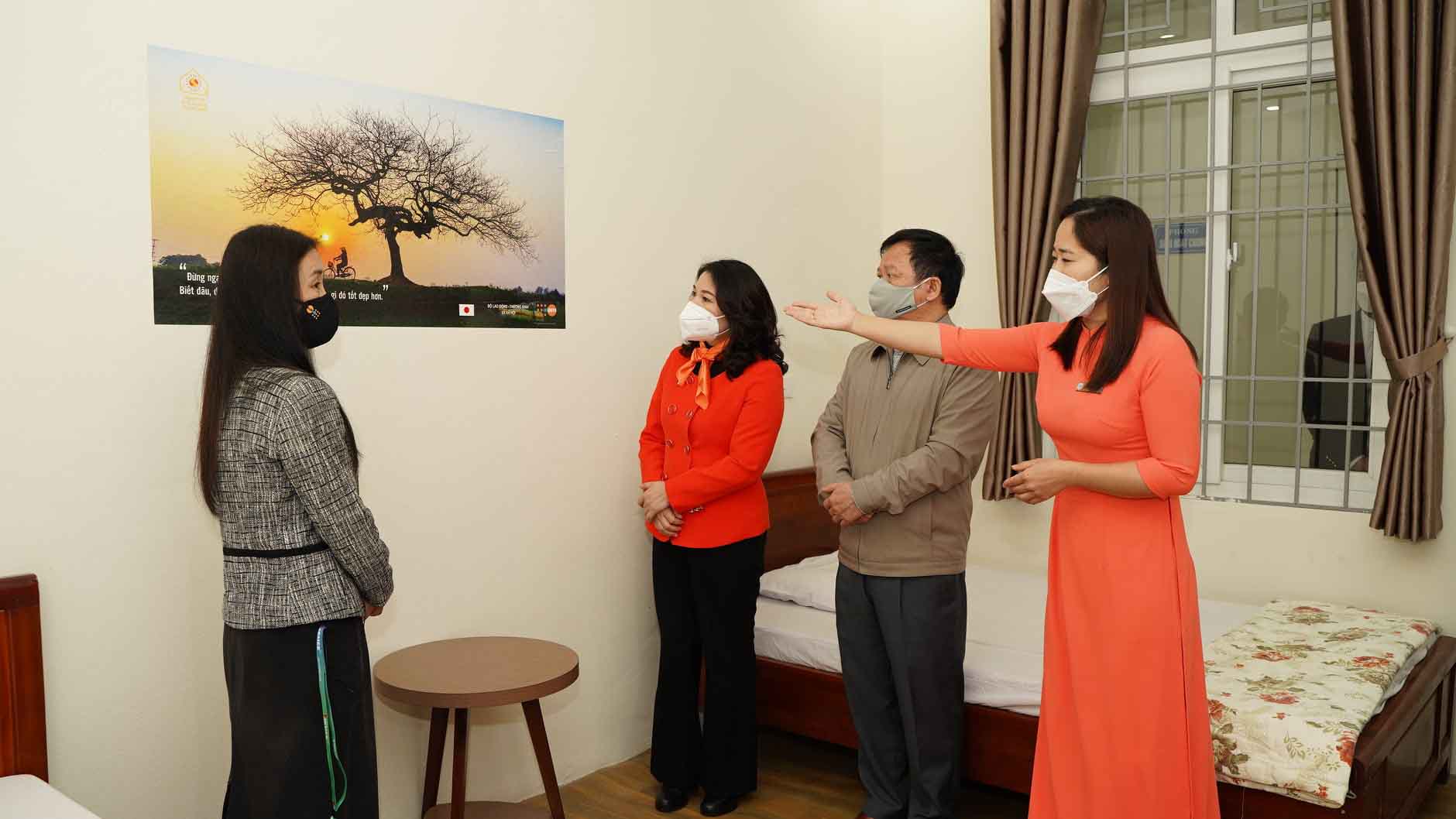HCMC – A one-stop service center was officially put into operation in the north-central province of Thanh Hoa on January 21 to support victims of gender-based violence in Vietnam.
This “Ngoi nha Anh Duong 2” (Sunshine House 2) center is the second of its kind in Vietnam, providing integrated, essential and comprehensive services to people experiencing or at risk of gender-based violence.
The center aims to ensure that women and girls in Vietnam, including the most vulnerable, have the right to live a life without violence and harm to their dignity, according to Naomi Kitahara, Representative of the United Nations Population Fund (UNFPA) in Vietnam.
Addressing the launch ceremony of the center, Kitahara said the UNFPA is honored to contribute to the Vietnamese Government’s efforts to prevent gender-based violence against women and girls.
The “Sunshine House 2” center offers a wide range of services meeting international standards, including healthcare, psychological support, counseling, social welfare services, emergency shelters, police protection, legal and justice services, and referrals.
It also has a toll-free hotline 1800 1744, available 24/7 to detect, prevent and support survivors of violence.
The project is the outcome of the collaboration between the Ministry of Labor, Invalids and Social Affairs (MoLISA) and the UNFPA toward ending gender-based violence against women and girls under the UNFPA project, “Mitigating Covid- 19 impacts on Vulnerable Populations – Ensuring National Progress to Achieve Sustainable Development Goals in Vietnam”, which is funded by the Government of Japan.
The first Sunshine House was set up in the northern province of Quang Ninh as part of a collaboration between the MoLISA, the Korea International Cooperation Agency (KOICA), and UNFPA Vietnam.
Since its operation in April 2020, the center has become a safe haven for more than 300 women and children who are victims of gender-based violence. The center’s hotline 1800 1769 receives more than 1,000 calls per month.
Two more similar centers, which will be funded by the Japanese Government, are expected to be set up in HCMC and Danang in the first quarter of this year.
Despite many efforts, gender-based violence is still a problem everywhere, every day, including Vietnam, and remains one of the most pervasive human rights violations in the world today, according to the UNFPA.
It is estimated that one in three women globally experience violence over their lifetimes. Now, the Covid-19 outbreak may be exacerbating the problem.
The national study on violence against women in 2019 showed that nearly two in three married women (almost 63%) in Vietnam have experienced one or more forms of physical, sexual, emotional and economic violence and controlling behaviors by their husbands in their lifetime.
Violence against women remains hidden. Half of the women who experienced violence from their husbands had never told anyone.
Almost all women (90.4%) who experienced physical or sexual violence from their husbands did not seek any help from formal service providers. Violence against women has serious consequences on economic development, as well as their physical and mental health. It costs Vietnam’s national economy some 1.8% of gross domestic product.
Data from Quang Ninh Province shows that between 2016 and 2018, there were more than 500 cases of gender-based violence reported, and women victims constituted 81%. In particular, there were emotional violence (65.2%), physical violence (29%), sexual violence (2.3%), and economic violence (9.5%) cases. The large majority (76.3%) of victims were aged 16-59 years.
In times of crisis such as the Covid-19 outbreak, women and girls have been at a higher risk of intimate partner violence and different forms of violence caused by other members of the family due to their confined home environment for a prolonged period, restrictions on movement and heightened stress and tensions in the household.
Other forms of gender-based violence may also permeate, including sexual exploitation and abuse in these situations. In some countries, the number of women calling for help has doubled. In Vietnam, gender-based violence service providers have also observed increases in the number of calls during the pandemic.
“We believe that every woman and girl have the right to live in a gender-based violence-free environment. The project’s activities, including establishing a coordination mechanism to facilitate inter-institutional support essential services, will bring about efficient, professional, gender-sensitive and tailored assistance to victims of gender-based violence,” said Cho Han-Deog, Country Director of KOICA Vietnam Office.









